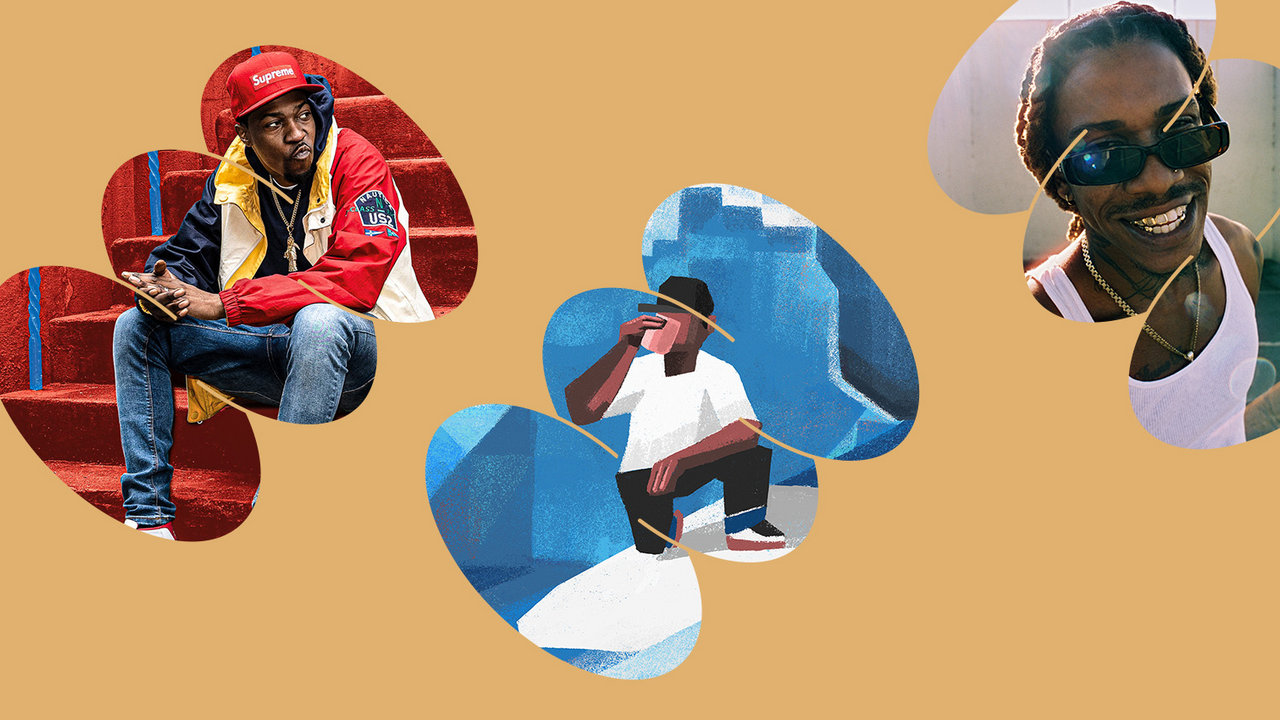
In early March, Philadelphia shoegaze band Nothing hosted a one-day festival called Slide Away in their hometown. Named after a song by The Verve, the lineup mostly featured an array of younger bands influenced by the loud, dreamy sounds of shoegaze and dream pop. Odell Nails, who played drums in a band called Majesty Crush—a band that released one album before breaking up in 1995—was in attendance. “I was getting approached by kids who were identifying me as a member of Majesty Crush,” he recalls, “And to be honest with you, I have no idea how they were doing that.” Despite sharing bills with bands like Mazzy Star, Royal Trux, and fIREHOSE, Majesty Crush never quite became a household name in the ‘90s. “20 years ago, I wasn’t thinking I was this guy in Majesty Crush,” says bassist Hobey Echlin. “It wasn’t a part of my life. It wasn’t relevant. It seemed like a footnote.”


But shoegaze has recently seen a groundswell in popularity among Millennials and Gen Z, fueled not only by the wealth of bands like Nothing (who began re-popularizing the genre over a decade years ago), but also by a rediscovery of niche ‘90s artists who never got the same attention as the dominant UK bands of the first wave, like My Bloody Valentine and Slowdive. In other words, Butterflies Don’t Go Away, Numero Group’s new Majesty Crush compilation, couldn’t have come at a better time. “You could never predict this,” says Nails, “but just where tastes lie post-internet—where people are able to connect dots with different eras, and young people are getting into things that we had to search for in the back of NME or Melody Maker—that has culminated in this open-mindedness. Majesty Crush is fitting into that sweet spot, and we’re seeing that in real-time.”
The music of Majesty Crush has many qualities that also occupy that “sweet spot”: the loud, washed-out guitars; the masterful combination of pop sensibility and post-punk roots; the dreamlike, sensual vocals. But there are also key differentiators. Unlike the vast majority of first-wave shoegaze bands, both born out of and championed by a thriving British scene, Majesty Crush were from Detroit. Their multiracial makeup—Nails and late frontman David Stroughter are Black, and Echlin and guitarist Mike Segal are white—stood out in an overwhelmingly white genre. Coming from what Nails deems a “DIY punk background,” Majesty Crush played something scrappier than the effects-laden Frippery of most shoegaze bands (Segal, for instance, had a comparatively spartan three-pedal setup, and showed up to the band’s first practices playing a guitar missing three strings). “Equipment—like the quality of equipment—and chops? Those were dirty words,” says Nails.
Stroughter’s magnetic presence was Majesty Crush’s calling card. “I was never a fan of bands where the most developed person was the guitar player, and it seemed like everybody else was chasing him,” says Echlin. “One thing we did, almost unwittingly, is we created a backdrop for a really great singer, for a singer to be a frontperson, to stalk the stage and have this platform.” Where most other shoegaze vocalists were buried under tracks upon tracks of effects and overdubbed guitar, Stroughter’s nimble, breathy singing was always in the limelight—something that showcased not only his gift for melody, but also his idiosyncratic lyrics. “Dave was a natural obsessive, and it was usually about romance—or lust is probably the better word for it,” says Nails. “He could create different descriptions of desire. That was Dave’s magic.” The band’s biggest hit, “No. 1 Fan,” is written from the perspective of John Hinkley Jr., whose obsession with the actress Jodie Foster drove him to try to assassinate then-president Ronald Reagan. The first verse, from which Butterflies Don’t Go Away gets its title, is giddy with infatuation, with Stroughter singing, “I feel the love inside my jeans.” But by the second chorus, he’s wailing about his darker intentions. “I remember we didn’t even know he was singing ‘Kill the President,’” says Segal. “When we heard it onstage, I remember Hobey and me looking at each other like, ‘That’s what that was?!’”
“We were in the dark,” Echlin says, referring to Stroughter’s often-opaque songwriting. “Dave would just show up with these lyrics that were incredible,” he continues, describing “Sunny Pie” as “a Prince song if Syd Barrett wrote it.”
Majesty Crush released a single and EP on their own label, Vulva, before signing to Elektra subsidiary Dali/Chameleon for their 1993 debut album, Love 15. A month later, the label dissolved while the band was in the middle of a tour, leaving them to release their final EP in 1994 on Vulva again. By the end of ‘95, they’d broken up.
Towards the end of the bands run, while on tour in 1994, Elchin remembers Tanya Donelly of Belly telling him, “I think everyone in your band needs therapy.” “If you ever watch any of the live clips that are up on YouTube,” he says, “you can see what [she was] talking about: Dave could be very volatile, and he’d create this tension onstage, and then he’d sing these songs that had these really delicate lines between loving and cringey. That was his forté.” A few years later, Stroughter was diagnosed with bipolar schizophrenia. He lost touch with the band, moved to Los Angeles, and in 2017 was shot and killed by police at age 50. In an alternate timeline, the current uptick in Majesty Crush’s popularity might lead to reunion shows at events like Slide Away. But it’s impossible to imagine the band without Stroughter’s singular presence.
Nevertheless, Nails is heartened by the band’s legacy: “I see young Black kids who are into different forms of music and are looking at us as trailblazers. I’m noticing more with this re-release that it’s a reminder to people that no matter what color you are, your background, your sexual orientation, it’s what you want to do and what art you want to make. It’s inspiring.”







